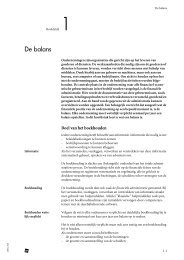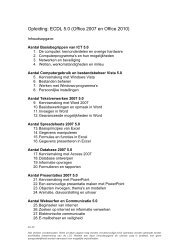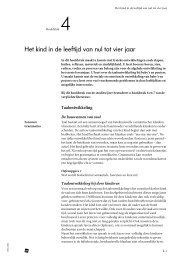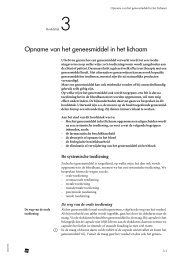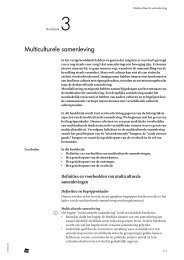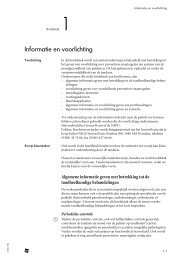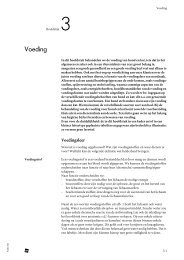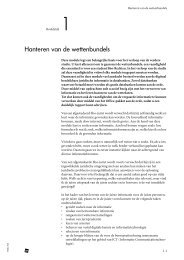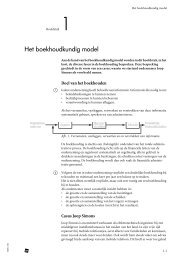Bekijk een hoofdstuk
Bekijk een hoofdstuk
Bekijk een hoofdstuk
Create successful ePaper yourself
Turn your PDF publications into a flip-book with our unique Google optimized e-Paper software.
Introductions<br />
2.<br />
A. Hello, Joan! Where……………………(you/go)<br />
B. I ……………………(go) to my evening class. I ……………….(learn)<br />
Italian.<br />
A. Really I………………..(go) to an Italian class once a week too.<br />
3.<br />
A. ……………………….(you/normally/go) on holiday in the summer<br />
B. Yes, we ………………..(usually/spend) a month in France, but this year we<br />
……………………..(stay) here.<br />
A. We ………………………..(not/go) on holiday this year, either.<br />
4.<br />
A. Where ……………………..(your brother/work)<br />
B. He…………………..(work) for a big computer company. And your sister<br />
A. She…………………..(not/work) at the moment. She’s unemployed.<br />
Cultural Background<br />
Engels mag dan de voertaal zijn in de internationale zakenwereld, maar het zijn<br />
niet all<strong>een</strong> de niet-Engelstaligen die moeten leren om de Engelse taal effectief<br />
te gebruiken. Vaak is <strong>een</strong> non-native speaker makkelijker te verstaan en te<br />
begrijpen dan <strong>een</strong> native speaker van de Engelse taal. Lees de volgende tekst met<br />
behulp van de gegeven vocabulary en beantwoord de vragen over de tekst bij<br />
key exercise 15.<br />
English, the simplified way<br />
Ask a Swedish Ericsson executive ”Talar du Svenska” and he may well reply<br />
”Yes, but only at home. At work I speak English.” Ericsson is one of the growing<br />
number of European companies that use English as their official corporate<br />
language. These companies recognise and, at the same time, increase the<br />
dominance of English as the language of international communication. Soon,<br />
the number of speakers of English as a second language will exceed that of<br />
native English speakers.<br />
Although a company might use English as its official language, its employees<br />
are unlikely to be bilingual. Language trainer Jacquie Reed thinks we consistently<br />
overestimate the fluency of non-native speakers. ”We always assume that<br />
because their language skills are better than ours, they understand everything<br />
we say.”<br />
How should we adapt our use of language and what are the common problems<br />
”Simplify it,” is Reid’s advice. ”Don’t over-complicate the message. Reduce<br />
what you’re saying to manageable chunks.” Reid always tells people to limit<br />
themselves to one idea per sentence. ”It’s also important to slow down and not<br />
to raise your voice.”<br />
Dr Jasmine Patel, a language consultant at Europhone, says different languages<br />
all have their own approach to dialogue. ”The British start with idiomatic<br />
expressions So, should we get down to it meaning let’s start and understate<br />
important issues with phrases such as There could be a slight problem meaning<br />
there is an enormous problem. They also say That’s a good idea, but…when they<br />
mean No. The British will also say that’s interesting when they mean I really<br />
676B1.FM<br />
1.19



